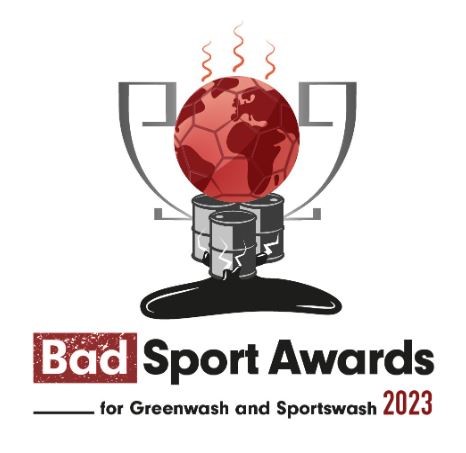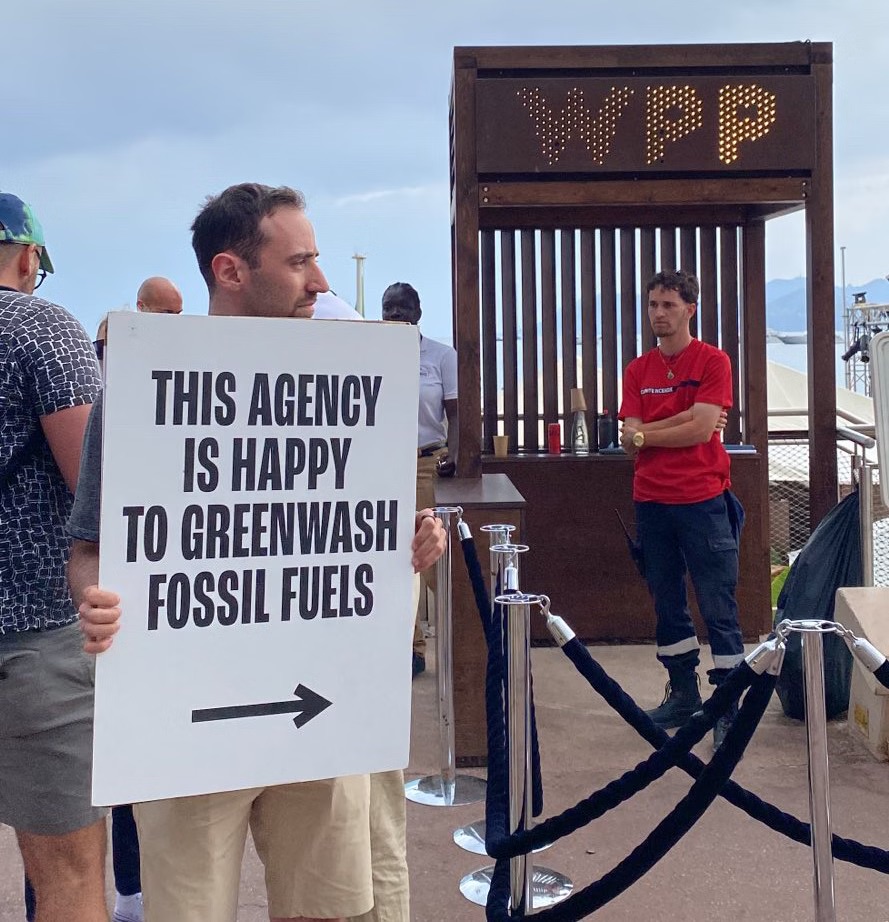Imagine a World Cup Final, one team brazenly fouls in their own penalty box, but no penalty is given. The referee waves play on. It happens repeatedly and the offending team goes on to win. Interviewed after the match, the most guilty player says, “So what, I fouled, I’d do the same thing again, I don’t care!” and they face no official sanction for saying so. Sound far-fetched? If only.
Saudi Arabia is set to win the role of top sponsor of international football’s governing body, FIFA, after openly admitting that one of the reasons it engages in sponsorship is to ‘sportswash’ its national reputation for economic benefit. It even says it has no qualms in doing so. “If sport washing is going to increase my GDP by way of one percent, then I will continue doing sport washing,” said Saudi Arabia’s crown prince, Mohammed bin Salman. Allowing the nation the honour of being your flagship sponsor is a bit like making Lance Armstrong rider of the year and the face of cycling after the Tour de France drug revelations emerged.
Worse still, it has now emerged from new undercover reporting that Saudi Arabia is operating a so-called ‘Oil Sustainability Programme’ (OSP) designed to artificially increase demand for oil across Africa and Asia.
For these reasons, and marginally to re-level the playing field, the Saudi kingdom has been awarded this year’s top prize at the Bad Sport Awards 2023, a new, annual scheme organised by the Badvertising campaign in association with the Cool Down Network of sport for climate action, and an expert judging panel.
The awards fall just as another controversially chosen oil state, the United Arab Emirates (UAE), plays host to international climate talks, COP 28, at which the UAE was revealed as planning to use the opportunity to make more oil and gas deals. And, next year, the 2024 Olympics will see the Paris games sponsored by other major polluters, such as car maker Toyota, that has sought, for example, to delay the introduction of electric vehicles.
If there was an Olympic medal for the most self-defeating species, humanity would be on the podium. Good sport draws public audiences in the billions like nothing else. It should be a celebration of healthy human ability, and encourage participation. Sadly, all around the world sport is attracting ever more major polluters as sponsors — bad sports intent on normalising the threat to the climate they represent.

‘Snow Thieves’
Sport once allowed itself to be used as an advertising hoarding for tobacco companies, in spite of that conflicting with its role as a youth activity and being a pathway to healthy, active living. Now the air pollution from burning fossil fuels alone is estimated to kill more than tobacco smoke. Sport is not only particularly vulnerable to global heating, but pushing its way through the pack to be a world leader in what should be the latest Olympic demonstration event: digging your own climate grave.
In the shadow of Black Friday’s orgy of overconsumption, and foreshadowing annual dreams of a white Christmas, nowhere is this clearer than in winter sports. Earlier this year the world’s biggest cross country ski race, the Vassaloppet, held in Sweden, was sponsored by fossil fuel company Preem and car maker Volvo. Emissions from those two sponsors alone, dubbed the ‘snow thieves’, was enough to melt 210 square kilometres of snow cover, an area over 200 times the space taken by the ski race itself. The last winter Olympics in Beijing relied almost entirely on artificial snow and by the end of this century it’s projected that only one of the 21 cities to have held the winter Olympics will still have a climate capable of doing so again.
For accepting major polluters as sponsors, in a way that British winter Olympic medalist, Lizzy Yarnold, once described as “like winter sport nailing the lid on its own coffin”, the ‘Thin Ice’ Award was handed to the Swedish Ski Association for their ongoing sponsorship deals with car manufacturer Ford, lorry manufacturer Scania, and Swedish airline SAS.
Anna Jonsson, co-director of think tank New Weather Sweden, and a Bad Sport Awards 2023 judge, said: “Having high carbon sponsors in winter sports is deeply ironic, with their pollution melting the very snow and ice that the sport itself relies on. This affects the elite athletes as well as all the kids and anyone else who wants to enjoy the pleasure of skiing or skating.” Also in the running for the award had been the sponsorship deal between Norwegian Oil and Gas giant, Var Energi, and the Norwegian Ski Federation. Astonishingly Saudi Arabia won the bid to host the Asian winter games for 2029, and are thought to want to host the 2030 winter Olympics, a decision on which will be made in mid 2024.
Poignant in the context of the revelations of the Saudi programme to ‘hook’ African nations on fossil fuels, criticised by Mohammed Adow, Director of Power Shift Africa, for coming, “At a time when the rest of the world is cleaning up and weaning itself off dirty and polluting fossil fuel”, the ‘Bad Bet’ Award went to TotalEnergies’ sponsorship of the upcoming African Cup of Nation 2023 (AFCON) in Cote d’Ivoire. Frank Huisingh, founder of Fossil Free Football and an Awards judge, said: “Sports fans know that the climate crisis has a huge impact on their favourite sports, including football. They expect their sports to take serious climate action. Selling their platforms to the world’s biggest polluters is exactly the opposite of that.”
In other prizes, the ‘Own Goal’ Award went to the Nissan Formula-E team’s sponsorship deal with Shell, the oil company that in the last year performed what was called a ‘climate wrecking u-turn, ‘hitting the brakes’ on renewable energy, and shelving plans to cut oil production and shrink its carbon footprint. The ‘Taking Us For A Ride’ Award was handed to the recent partnership between the British Olympic Association, the British Paralympic Association and British Gas, a company that was recently found to have made misleading green claims about hydrogen boilers, a technology many believe to be a false solution, but convenient for incumbent fossil fuel suppliers.
Sponsorship as a Weapon
The exploitation of sport by major polluters is so ubiquitous now that it pushed 2012 Olympic GB gold medalist, Etienne Stott, also a Bad Sport Awards judge, to say, “We are definitely well into an era of greenwash and sportwash. Many high-carbon organisations, who are fully aware that their business models are incompatible with a safe future for human civilisation, have gone into overdrive, trying their hardest to buy favour with the public by associating with some of the most loved and cherished sports.”
Sport is often referred to as a battlefield, or a substitute for actual conflict. One thing is clear: It has become the ground on which major polluters are fighting hard, wielding sponsorship as a weapon to make polluting products and lifestyles appear acceptable.
At the end of yet another year which is set to break global heating records, television adverts abound of octogenarians happily ordering toboggans from online retailers, while visions of snowmen and skating are co-opted to keep people shopping. Meanwhile the chance of meeting the 1.5C international climate target looks like it has the life chances of a snowflake in June.
Seeing polluters given naming rights on stadiums, global sports competitions and on the kit of some of our best athletes, feels like the wrong kind of reward for bad behaviour. Much better to hand out some ‘Bad Sport Awards’, so that at least people can see them for what they are.
Andrew Simms is co-director of the New Weather Institute, co-founder of the Badvertising campaign,the Rapid Transition Alliance and assistant director of Scientists for Global Responsibility. Follow on X @AndrewSimms_uk or Mastodon. @[email protected].
Subscribe to our newsletter
Stay up to date with DeSmog news and alerts







